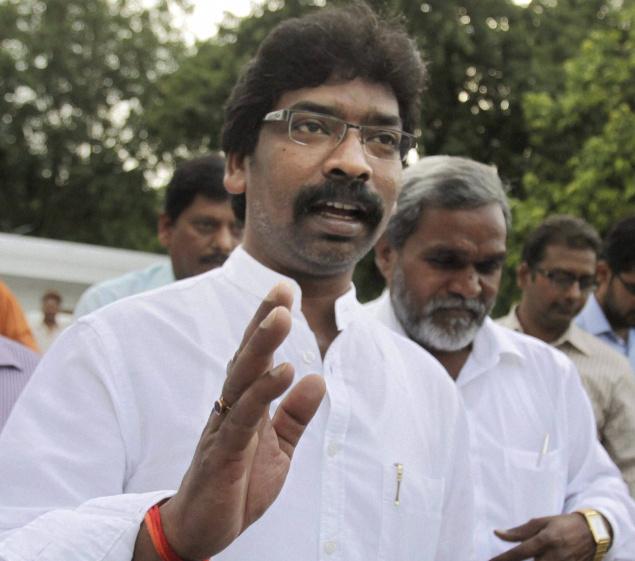Ahead of Lok Sabha elections in 2014, the Congress struck its first alliance on Friday, when it agreed to share seats with the Jharkhand Mukti Morcha (JMM) in the five States of Jharkhand, Odisha, West Bengal, Bihar and Chhattisgarh.
In Jharkhand, the Congress drove a hard bargain: it will contest 10 of the 14 seats in the State, leaving the remaining four to the JMM. In return, the Congress will back a JMM-led government in Jharkhand, where President’s rule ends on July 18.
Shortly after the agreement was finalised, JMM leader Hemant Soren, who is set to become the next Chief Minister of Jharkhand, told journalists here, “We will also fight the 2014 Lok Sabha elections together. The Congress today assured us of support.” After he returns to Ranchi, Mr. Soren will stake his claim to form a government there.
Meanwhile, Congress general secretary B.K. Hariprasad, who as in charge of Jharkhand led the negotiations with the JMM, said, “A common agenda of governance will be prepared and made public within two weeks of a government being formed in the State.” A special committee to monitor the common agenda’s implementation as well as a coordination committee “to facilitate the smooth functioning of the coalition government” will also be set up, he added.
The Congress is clearly upbeat at having gained a new ally: “When allies are deserting NDA, new parties are coming to the UPA,” stressed Mr. Hariprasad.
The Congress’s electoral arrangement with the JMM, a senior party functionary said, would be limited to the areas in these States with a high tribal population: “This will ensure,” the functionary said, “that the Adivasi vote does not get split.”
However, this agreement does not preclude the possibility of the Congress seeking an additional partner in West Bengal and Bihar. It has not yet decided whether to renew its ties with the Trinamool Congress in West Bengal or whether it will come to a seat arrangement either with the Rashtriya Janata Dal or Janata Dal (United) in Bihar.
Indeed, the fact that the RJD, too, will be part of the proposed JMM-led government in Jharkhand will have its political repercussions in Bihar. A senior JD-U functionary said there was no question of the party’s two MLAs joining the JMM government as the RJD is to be a part of it, but he added that the party would not try to pull down the government either.
The Congress’ official rationale for coming to an arrangement with the JMM was spelt out by Mr Hariprasad: “The Congress and the JMM have decided to form an alliance,” he said, “to protect and promote secular and progressive values and to ensure the further empowerment of the weaker sections of society.”
The new government will work to ensure that the Adivasis and other weaker sections of society, the Congress general secretary also stressed, “are not adversely impacted by and benefit more substantially from mining activities where it is permitted under the existing regulations and legislation.”
The Congress, of course, also believes that its partnership with the JMM will pay it electoral dividends. In 2004, when the two parties had contested the Lok Sabha polls together, along with the CPI and the RJD, they had together secured 13 of the 14 seats. But in 2009, when they fought separately, the Congress won a solitary seat and the JMM just two.

